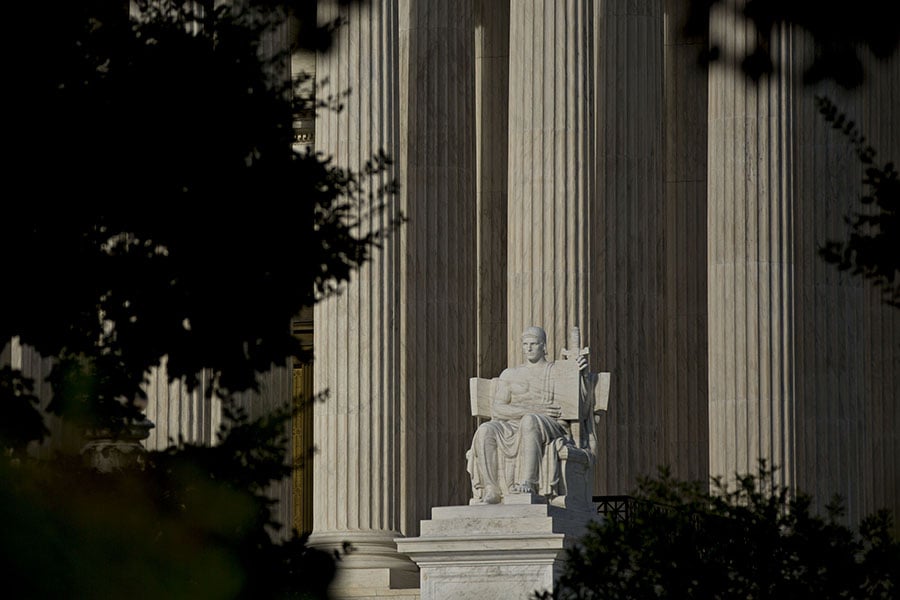

The Supreme Court’s conservative majority cast doubt on the Securities and Exchange Commission’s use of in-house judges, hearing arguments in a case that could strip the agency of a key enforcement tool.
In a session that lasted more than two hours, the justices suggested that people accused of fraud by the SEC have a constitutional right to go before a federal court jury, at least when the commission is seeking civil penalties.
“It seems problematic to say the government can deprive you of your property, your money, substantial sums in a tribunal that is at least perceived as not being impartial,” Justice Brett Kavanaugh said.
The dispute is part of a Supreme Court term likely to have broad implications for federal regulators. The justices are also considering whether the Consumer Financial Protection Bureau’s funding system is constitutional and whether to overturn a precedent that gives agencies leeway when they interpret ambiguous congressional commands.
The session underscored the deep skepticism among the court’s six Republican-appointed justices toward the expansion of federal regulatory power in recent decades.
The “impact of government agencies on daily life today is enormously more significant than it was 50 years ago,” Chief Justice John Roberts said.
One of the court’s liberals, Justice Elena Kagan, countered that “our problems have only gotten more complicated and difficult, and it’s usually Congress that decides how to solve those problems.”
The Biden administration is appealing a ruling that found multiple flaws with the SEC’s reliance on its administrative law judges. The high court session focused almost entirely on contentions that the Constitution’s Seventh Amendment guarantees the right to a jury trial in SEC enforcement cases.
Wednesday’s case involves George Jarkesy, a former hedge fund manager and conservative radio host. In 2013, the SEC accused Jarkesy of misleading investors about who served as his funds’ prime broker and auditor and about their investment strategies and holdings.
An SEC judge found Jarkesy had committed securities fraud, and the commission eventually ordered him and his firm to pay almost $1 million. Jarkesy then appealed to the 5th Circuit Court of Appeals.

To help fund the proposal, the governor and Florida's finance chief are probing municipal finances on a "local government accountability tour" to uncover potential waste.

Edward Jones’ job cuts and overall realignment internally are contributing to higher costs for the company, it said in its recent quarterly report.

Meanwhile, Fifth Third's RIA arm adds a former billion-dollar BNY trio in Boulder, Colorado, while a hybrid RIA opens a new North Carolina location with a former Raymond James-affiliated team.

Analysis highlights swelling out-of-pocket costs and wasted time on paperwork, with an outsized toll on businesses and around crypto transactions.

The appointment to its investment management arm comes roughly a year after the firm first announced plans to launch its own exchange-traded fund platform.
Orion's Tom Wilson on delivering coordinated, high-touch service in a world where returns alone no longer set you apart.
Barely a decade old, registered index-linked annuities have quickly surged in popularity, thanks to their unique blend of protection and growth potential—an appealing option for investors looking to chart a steadier course through today's choppy market waters, says Myles Lambert, Brighthouse Financial.
